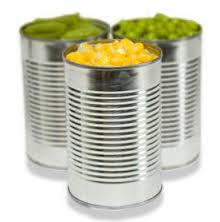
Long term food storage is just practical. Whether you’re just stocking up a little extra in case of a financial emergency or you’re preparing for a zombie apocalypse, your food stockpile may just come in handy in the future. If worse really does come to worse, in can even save your life.
Acquiring a stockpile of emergency food, however, can seem financially impossible, or at least extremely difficult. Some people may feel overwhelmed at the prospect of long term food storage due to financial or storage concerns. The good news is, though, acquiring an emergency food stockpile isn’t impossible at all! In fact, the idea may be more attainable than you might think!
Here are a few tips to get you started on your long term food storage goals…
#1. Educate Yourself
Educating yourself is one of the best things you can do before you start on your long term food storage goals. And, it’s free! You can access books on food storage, survival, emergency preparation, and similar topics at your local library. The Internet is also an amazing wealth of information with loads of websites, blogs, and forums dedicated to survival and long term food storage.
#2. Store What You Eat
There are no lima beans on my long term food storage shelves. Why? Because we don’t eat them. Ever. Because lima are gross! My point? Spending money on something you and your family don’t normally eat, is just a waste of money and space. Granted, I would probably get over my hatred of lima beans if it was the only thing to eat, but my money and space is better dedicated to items that we do eat. This is just more practical since at some point in time we will be using items from our long term food storage in non-emergency situations as well.
#3. Set a Budget
If you tried to pick up an entire six month food supply at one time, it would cost you an arm and a leg, and probably a major organ or two. Instead, peck away at your long term food stockpile a little at a time. Set a fixed budget and use that money to add to your long term food storage shelves. Even $10 from every paycheck can really add up over time! If you don’t use the full budget one week, roll over any extra and add it to the next week’s budget.
#4. Watch for Sales
To get the most bang for your buck, keep an eye on sales at your local stores. When you find something a good deal on something, use what you can from your budget to stock up. Using coupons on sale items can help you save even more and stretch your food storage budget even further.
#5. Learn Some Skills
Canned goods are a great way to add to your long term food storage , as are dehydrated foods. Learning to can and dehydrate your own foods can help you save a nice chunk of change. You can pick up seasonal produce for a nice price and can or dehydrate your finds. If you grow your own produce, dehydrating and preserving your bounty is a great way to extend your harvest for several months or even years!
#6. Package Your Stockpile Correctly
Canned good are pretty easy to store long term; just stick them on the shelf. Not everything, however, is as easy to store long term. White rice, for instance, can last for years, but only if it is properly stored, away from light, oxygen, and bugs. Take some time to learn how to store the items in your emergency food stockpile, and they should last as long as you need them to with minimal waste.
#7. Get Creative with Storage
Lack of storage space is probably the second biggest reason that most families don’t start an emergency food stockpile. However, if you take a good look around, you’ll most likely find that you have way more available storage space than you think. We’re lucky enough to have a pantry, but I know others who have very little storage space. They carve it out anywhere they can. You’d be surprised with how much storage in under your bed, for instance, or how much storage you can gain by adding high shelves to a closet.
#8. Don’t Forget to Rotate
Once you have a good start on your long term food storage, you don’t want any of that food (or money!) to go to waste. It’s a good idea to keep an eye on expiration dates and regularly rotate the items in your stockpile to prevent spoilage.






